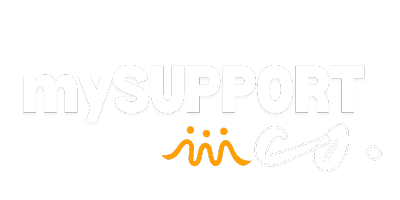🤔 NDIS-Approved vs Non‑Approved Items: Clearing the Confusion
✅ What “NDIS-Approved” Really Means
There’s no universal list of “NDIS-approved” items. Instead, the NDIS evaluates each request based on whether a support:
Is tied directly to your disability and goals
Helps with independence, safety, or participation
Is cost-effective and good value
Isn't funded by other systems (e.g. Medicare, education)
Has evidence showing it's effective
Complements, not duplicates, other supports
Is included in the NDIS’s official list of fundable supports (since October 3, 2024)
✅ Approved vs ❌ Not Approved — Side-by-Side
✅ Funded Examples:
Communication support:
iPad with a speech app for someone who is non-verbalAssistive technology:
Robot vacuum to reduce reliance on cleaning support due to limited arm mobilitySafety at home:
Shower chair or grab rail to prevent fallsMeal preparation support:
Support worker to assist with meal prep if you’re unable to do it independentlyMobility & guide dogs:
Guide dog training and upkeep to support safe travel to uni or workMental health & behaviour therapy:
Psychology sessions for anxiety, trauma, or behavioural supportOT assessments & modifications:
Occupational therapy assessments for disability-related home modificationsTravel support:
Support worker hours during travel or STA (e.g. going on holiday with assistance)Modified vehicle:
Funded if clinically justified by OT/medical reportsLow-cost consumables:
Adaptive cutlery, continence aids, non-slip mats, perching stoolsNutrition supports:
PEG feeding supplies and delivery of prepared meals (not food itself)Health-related equipment:
Droplet-mode atomisers for disability-related respiratory issuesAlerting devices:
Doorbell alarms or safety devices for hearing or vision impairment
❌ Not Funded Examples:
General tech:
Standard iPad for entertainment or casual browsingHousehold items:
Regular vacuum, microwave, or fridge for general useHome upgrades:
Bathroom vanity or cosmetic renovationsGroceries:
Buying food or ingredients (even with a support worker)Pets:
General pet costs (food, vet, toys, grooming)Lifestyle services:
Life coaching, non-clinical wellness workshops, dating appsFurniture & decor:
Standard chairs, sofas, home styling itemsTravel costs:
Flights, hotels, activity entry feesCar running costs:
Petrol, rego, standard servicingBeauty & hygiene:
Makeup, perfume, or hygiene products not tied to a disabilityStandard food:
Regular groceries or takeaway mealsAppliances:
Regular humidifiers or comfort-based devicesPhone & internet plans:
Not funded unless linked directly to a disability needHome décor:
Rugs, artwork, cushions, curtains
🔧 Why Approved Might Differ by Person
Person A benefits from an iPad with a speech app due to severe speech impairment—
✅ Funded.Person B wants an iPad for general browsing—
❌ Not funded.
Correct documentation from therapists and quotes are crucial to show why it's “reasonable and necessary”
🔄 Replacements & Exceptions
You might get funding for something on the “No List” if it replaces a funded item, meets all criteria, and:
Costs the same or less
Achieves the same outcome
Directly relates to your disability goals ourguidelines.ndis.gov.au
For example, a robotic vacuum replacing a cleaner meets these conditions and can be approved.
✅ How to Tell What’s Approved
Check your goals — is the item disability-related?
Ask: Would I need it without disability?
If yes (e.g. internet, holiday), it's not approved.
Gather evidence & quotes for higher-cost items
Ask your Support Coordinator before buying
🛡️ Trustworthy Providers
Since October 2024, NDIA requires that funded supports be purchased from providers listed as offering approved supports. You can still use unregistered providers for certain items if you're self- or plan-managing—but be sure they’re legitimate
🗣️ Final Thoughts
There is no one-size-fits-all list — it’s about your needs, goals, and evidence.
Keep in mind value for money, cost-effectiveness, and documented disability links .
If you're ever unsure, your MySupport Co. Support Coordinator is here to clarify or help you apply for replacement supports.

